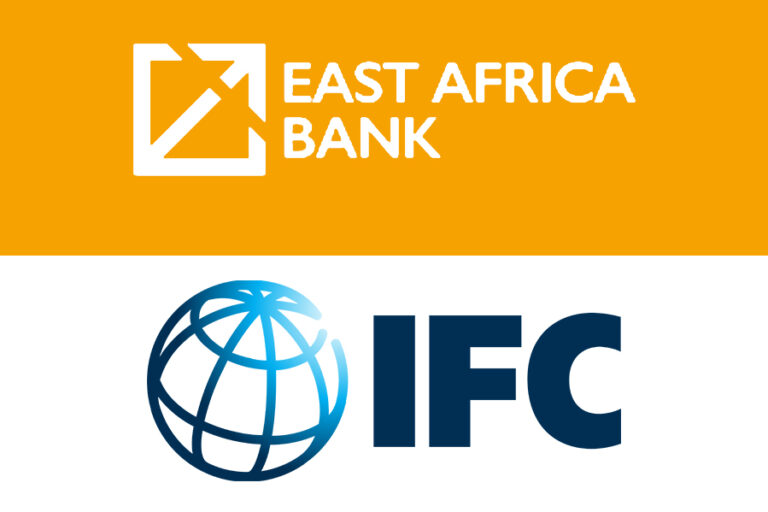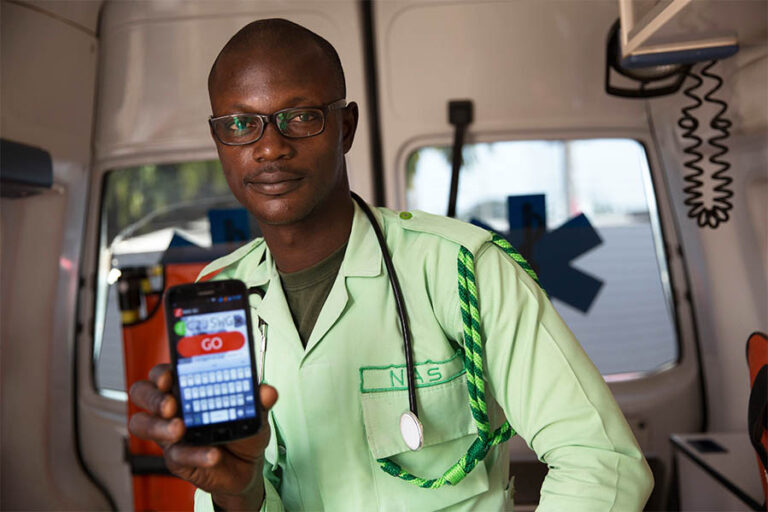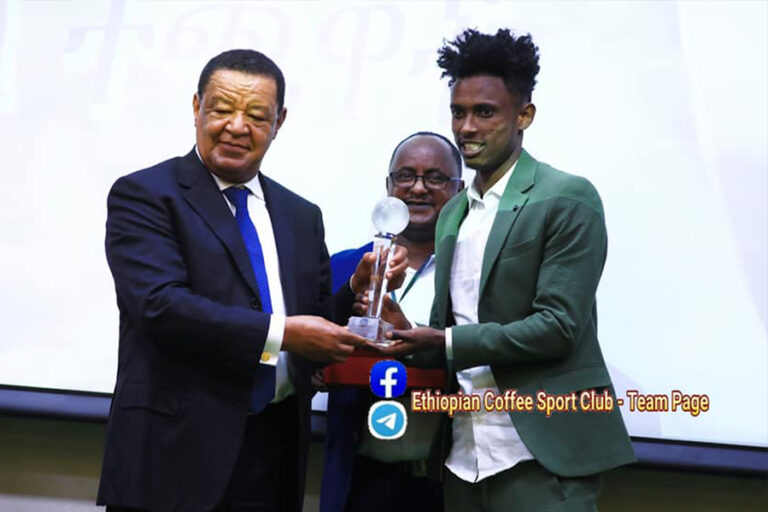Supporting a vital engine of economic growth that has been strained by the COVID-19 pandemic, IFC announced a trade finance guarantee facility to Djibouti-based East African Bank to help local companies engage in cross-border trade.
IFC’s trade finance facility guarantee of up to $5 million under its Global Trade Finance Program (GTFP) will help EAB provide financing to importers and exporters in Djibouti, supporting the local economy and helping maintain the flow of essential goods into the country, including medical equipment and commodities. IFC’s support to EAB is underpinned by the International Development Association’s Private Sector Window (IDA PSW), which is providing first-lost guarantees and limit enhancements to the GTFP in low-income countries.
Djibouti’s cross-border trade is largely facilitated through its international port, located at the crossroads of one of the busiest shipping routes in the world. Despite its strategic location, a lack of corresponding banking relationships continues to hamper the country’s financial services and trade.
The facility announced follows an advisory services agreement signed in April 2021 between IFC and EAB that is helping strengthen EAB’s risk, trade, and credit management framework and capacities in line with international best practices.
“We are delighted to partner with IFC in the GTFP and appreciate the role played by the board of directors and management and staff of EAB in making this a reality,” said Ibrahim Jaffar, CEO of East Africa Bank. “Thank you to all parties from IFC who conducted due diligence, trained our staff, improved our compliance environment, and approved this program as a vote of confidence in our capability to continue serving the economy by increasing the flow of trade globally,” he added.
“IFC’s partnership with EAB will guarantee trade-related payment obligations. Through our trade program, banks can support the smooth flow of trade globally as trade is a key driver of economic growth and contributes to job creation and poverty reduction,” said Cheick-Oumar Sylla, IFC’s Country Manager for Djibouti.
Through IFC’s GTFP bank network, local financial institutions can establish partnerships with major international banks to broaden access to finance and reduce cash collateral requirements. This enables the continued flow of trade credit into the market when imports may be critical, and the country’s exports can generate much-needed foreign exchange.
As of the end of fiscal year (FY) 2020, IFC’s GTFP had covered over 68,000 trade transactions and supported over $66.5 billion in emerging market trade, without a single loss since inception in 2005.
In addition, as part of the IDA-PSW COVID-19 response, in FY2020, GTFP supported over $3 billion in trade in low-income countries.
IFC partners with East Africa Bank to support increased trade and economic activity in Djibouti
Life-saving mobile app reduces ambulance response time for patients in informal areas
A mobile app developed in Ghana can slash the response time of ambulances by providing accurate location details without the internet. If you live in an area with few or unofficial street signs and addresses as billions do in developing countries this could mean the difference between life and death in an emergency.
The custom-made addressing system called SnooCODE RED was built by Ghanaian engineer Sesinam Dagadu, owner of tinyDAVID. It cuts response times by as much as 56%, which is especially important when responding to severely ill Covid-19 patients. The app can also be used to ensure that people in informal areas receive vaccinations.
Finding one’s way around in parts of Ghana and the cities, towns, and villages of other developing countries is challenging. Many streets aren’t named, houses aren’t numbered, and local residents use landmarks like trees, churches, or banks, to direct people. “That becomes a problem when an ambulance has been directed to ‘the blue kiosk at the corner’, but the kiosk has been moved,” says Dagadu. “The ambulance will then have to make follow up calls to find their patient, wasting valuable time.”
The software divides regions by simple codes using numbers and letters to make it easy for anybody to communicate their location and have others just as easily navigate to them. It generates a memorable six-digit alphanumeric location code using GPS to pinpoint an exact location, to an accuracy of 25 cm (10 inches) for specialist applications. The six-digit code remains the same for each specific location, meaning those with basic literacy levels and those without access to smartphones can easily memorise it for an emergency. Ambulance drivers and other users can enter the code into the app and it will calculate the best route to reach that address.
The app is being expanded to allow emergency responders to see a list of not just the closest health centres, but also the best-equipped hospitals to handle each emergency, at the touch of a button. This is being done with funding from the Embassy of Switzerland in Ghana and in partnership with the Emergency Medicine Society of Ghana.
The app is available in English, French and Portuguese and plans are underway to translate it to Arabic. The system has been optimised so that it can be used anywhere in Africa, South America, the Middle East and 70% of Asia. Because the software is not reliant on national infrastructure, and is simple enough for a pre-schooler to use, it has wide application during crises, natural disasters and disease outbreaks. Dagadu hopes that the innovation will help ambulance services meet the WHO’s standard of an eight-minute reaction time to emergencies.
Abubeker Naser splashed with bran new automobile
Ethiopia Bunna target man Abubeker Naser was handed a brand new automobile following his huge contribution in helping the club enter into international stage after nearly a decade. The club’s strongest sponsor Habesha Beer also gave away one million Birr prize money to be distributed among the players.
In the best ever award giving ceremony held at Sky Light Hotel in the presence of Ethiopian former President Mulatu Teshome and Mayor of Addis Ababa City Adanech Abebie, Ethiopia Bunna heralded that a new era is on the horizon for the club. “We are on the very right track to frog leap Ethiopia Bunna to the next stage” Board Chairman Fekade Mamo remarked at the reception.
The event which saw the partner Habesha Beer gave recognition to a number of individuals who played significant role in the club’s success story this year. The magic player who swept off all awards of the league season: crushing the five year-old all-time highest scorer record, top scorer of the season bagging 29 goals in 22 matches and taking home the Player of the year accolade, Abubeker Naser was handed a brand new automobile that is worth 1.4 million Birr.
The club’s women side player of the Year Fekerete Hailu, Best Player of U20 and U17 teams Musse Kebela and Surafel Hailu respectively are among those who shared the prize money from Habesha Beer Golden Award. The special award was handed to Coach Kassaye Arage for steering the side to runner-up spot at the league season. The one million Birr prize money is to be distributed among players, coaching staff, administration employees and others.
Misrak Kidane
Name: Misrak Kidane
Education: Degree in Accounting
Company name: Noeh Leather Products
Title: Owner
Founded in: 2019
What it does: Different kinds of leather products
HQ: Addis Ababa
Number of employees: 2
Startup Capital: 50,000 birr
Current capital: Growing
Reason for starting the business: My passion to designing
Biggest perk of ownership: Being your own boss
Biggest strength: Commitment
Biggest challenge: Raw material
Plan: To start exporting
First career: Employee in a shop
Most interested in meeting: PM Abiy Ahmed
Most admired person: My brother
Stress reducer: Spending time with friends / drinking
Favorite past time: Time with my son
Favorite book: The Bible
Favorite destination: USA
Favorite Automobile: Ford






